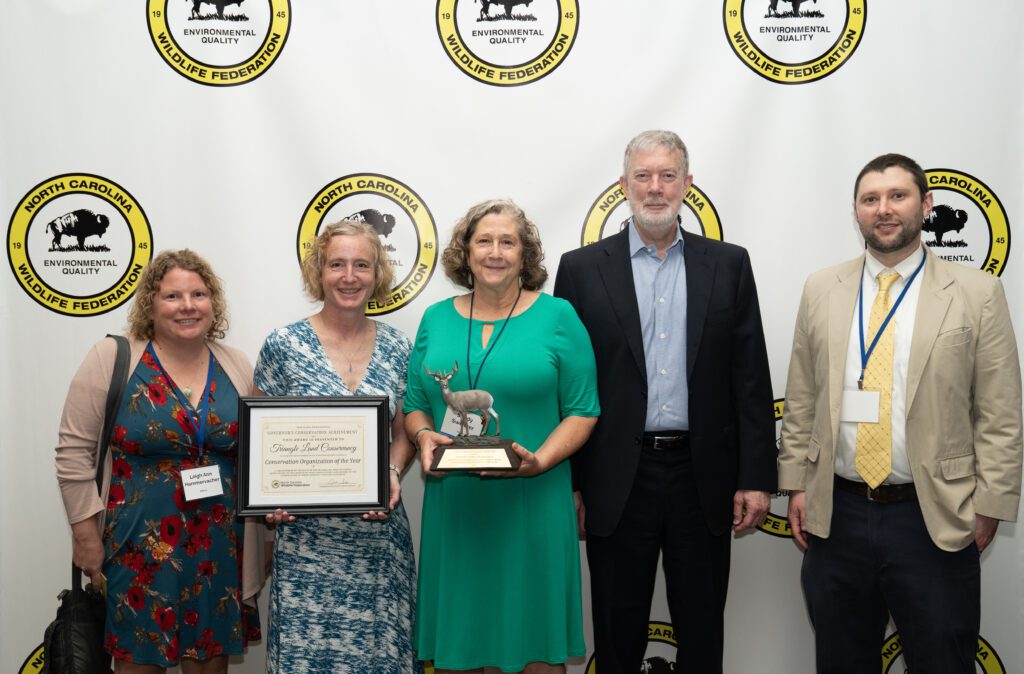By Olivia Bowler, Director of Communications

On Saturday May 3, Triangle Land Conservancy won Conservation Organization of the Year at North Carolina Wildlife Federation’s 60th Annual Governor’s Conservation Achievement Awards in Cary.
First presented in 1958, the NCWF Governor’s Conservation Achievement Awards are the highest natural resource honors given in the state. This year, TLC was among 19 honorees.
Edward Nickens, journalist and Communications Editor for NCWF, emceed the awards and introduced TLC with this summary:
“For 42 years, the Triangle Land Conservancy has been working to conserve land that isn’t doing a dadgum thing. Except cleaning water. And pumping out oxygen. And providing critical wildlife habitat. And giving folks places to hike and heal.
2024 was a milestone year for TLC, as the organization beat its goal announced in 2018 of conserving 25,000 acres by 2025—by a full year. And in just the past year, TLC protected 1,544 acres valued at $26 million and has an additional 1,800 acres in the works. Land that’s just sitting there. Doing nothing. Except everything.
Last year I got to see how TLC works, up close, as I watched with great interest how they moved to purchase and conserve 400 acres of Upper Neuse River farm and forestland, which I roamed for 14 years. I saw how they worked with the farmer who leased the land to help maintain his stewardship. I saw how deeply they dug for some $3 million to make the deal work. I saw how they took a piece of property that most likely was slated for warehouses and turned it into a cornerstone of open land in one of the most highly pressured corners of the Triangle.
In short, I saw why Triangle Land Conservancy has been named the Governor’s Conservation Organization of the Year.”

The recognition comes at a crucial time as we continue to accelerate our pace of conservation in a rapidly growing region. Like many conservation organizations, TLC is up against soaring land costs and other challenges compounded by accelerated development in the center of the state.
Executive Director Sandy Sweitzer said in her acceptance remarks that she hopes the win highlights the good work of the organization and the level of community support that TLC has. She also hopes the award underscores the need to do more.
“It’s a joy to work with such a smart, diverse, and dedicated community of people who value wildlife and wild places and are committed to helping everyone feel that they belong — on the land and in the conservation sector.”

